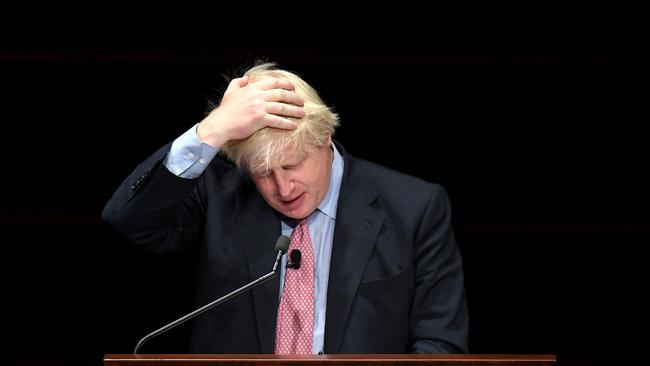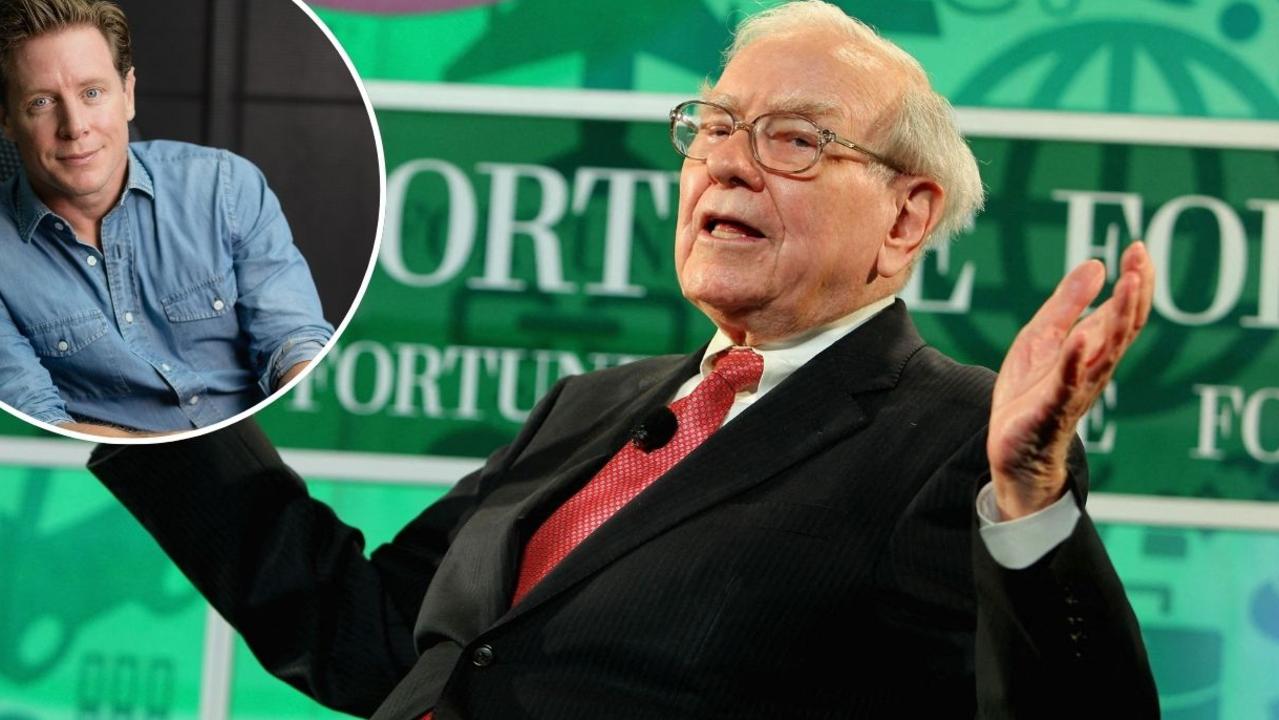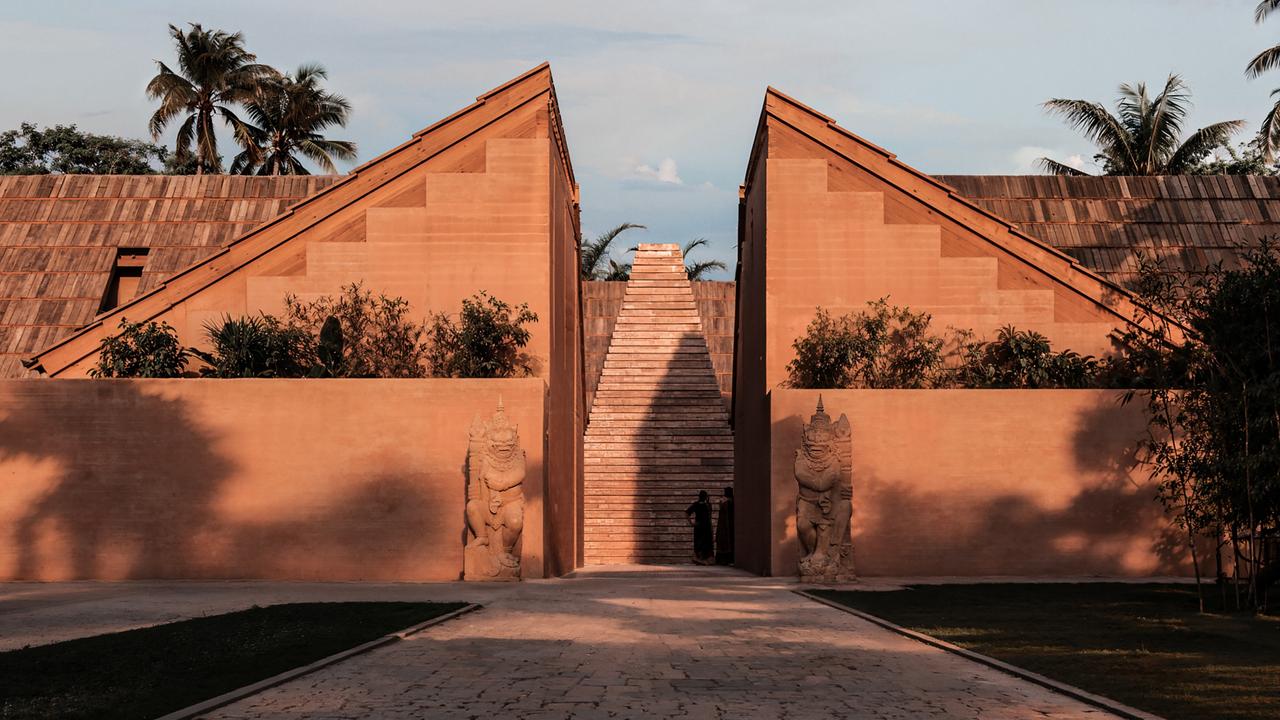Boris Johnson could ride Brexit to Britain’s top job
By any measure, Boris Johnson’s three-day charm offensive has to be deemed a rip-roaring success.

By any measure, Boris Johnson’s three-day charm offensive has to be deemed a rip-roaring success.
Ostensibly down for the AUKMIN meeting between British and Australian foreign and defence heads, just as important for the Foreign Secretary was the leverage he built for his Brexit battle. This visit was to be about trade and investment as much as it was about how to deal with growing geopolitical uncertainties in the region.
It was the free-trade agreement discussions you have when you have been stopped by Brussels from negotiating a free-trade agreement.
And for Johnson, the man who became the face of the Vote Leave campaign in Brexit even if it didn’t deliver him the leadership, Australia is one news story brimming with political upside.
Wherever he goes, his X factor draws this buzzing expectation.
It was the same at university where our paths crossed at the Oxford Union: both campaigned for president, one achieved it.
This week, there he was flying the flag in front of our national treasure, the Sydney Opera House, to promote the best of British in Laing O’Rourke’s makeover, and I caught him at the Tyro Tech hub as he enthusiastically chatted up the young start-uppers.
All great post-Brexit politics, all playing just as much for domestic consumption.
“Visas, visas,” he turned to his entourage.
“Can (we) do something about this?
“I’m hearing lots about this.”
He also had a very private British Chamber lunch with some of the most influential corporate chiefs and direct investors here.
Perhaps it was Boris Johnson’s infamy as a loose cannon, but over the three days the Foreign Secretary gave only one interview, to my The Weekend Australian colleague Greg Sheridan. The Defence Secretary gave several, including to myself on Sky News Business.
If you were looking for mischief from Johnson, it was all brilliantly bottled in his Brexit speech at the Lowy Institute on Thursday night.
Brilliant because of the masterful pitch that captivated the guests; brilliant, too, in how it drew together Australia and Britain as old mates pulled apart by continental Europe in 1973 when Britain joined the common market, but who now could blissfully re-engage.
What else could Men at Work’s Land Down Under have been written for? That Man in Brussels, six-foot-four and full of muscles who, he reminded us all, “gave me a Vegemite sandwich”. Make of that what you will, but the EU Commission president Jean-Claude Junker comes readily to mind.
My father remembers 1973 well. He was the British High Commission’s trade councillor in Canberra at the time, and he jokes that he oversaw the largest fall in trade between Britain and Australia, thanks to Britain joining the European market.
The rapport and more between Foreign Minister Julie Bishop and Boris Johnson was on display both at the AUKMIN press conference, which Bishop described as the best ever (and Boris as a “feast of reason, a flow of soul”), and later at the Lowy dinner.
The coquettishness of our Foreign Minister, carried off only because we know she can also stare down Vladimir Putin, (which Boris would highly approve of) included a gift of stretchy jogging leggings.
In diplomatic terms, the Bishop-Johnson bond has to be gold. And surely far more valuable than the Oxford connection of Malcolm Turnbull and Theresa May.
Boris Johnson was one of the few people, Lowy’s Michael Fullilove reminded us, who is known globally just by his first name. In my estimation, Boris is unchanged from his Oxford days back in 1985: brilliant, the same white mop (affectionately mimicked at Lowy by Julie Bishop), and in those days he sported a smart student model he later married.
At the union, when I was on my feet passionately proposing a motion that this house should abolish television, and putting a hammer through the front of a TV sitting under the dispatch box, I still remember him jumping up off his secretary’s chair behind me with perfect pantomime and a “Good Lord!”.
The Oxford Union is famous for producing leaders from their presidents, and indeed William Hague, just before Boris, also became British Foreign Secretary. His backers at Oxford, though, were the pimply conservative students; Boris’s backing was a combination: the intellectual elite and the masses to whom he appealed so greatly.
There’s no doubt in my mind that Boris is regrouping. But is the brilliance and oratory enough?
For the naysayers I would point to his record as Mayor of London, and not the achievements, like the bike paths, which began with his predecessor. No, it was the lack of stuff-ups; the smooth management of an extraordinary city and financial hub of Europe. That was the achievement. A high-wire act and carried off literally for those who remember.
One revelation at Thursday’s dinner was the critical role Frank Lowy’s Westfield investment played for the London Lord Mayor. “I know only too well the debt of my own city, London, to Frank Lowy — now Sir Frank — a man who kept investing even in the darkest days of the 2008 crash, and who kept building even when pretty well every other crane had been removed.”
A genuine and serious point, after which he changed tempo again. “We trade so much together — you sell us skateboards; we sell you boomerangs,” he said, stressing that they were the ones that didn’t come back.
There is much mention of Churchill around Boris, a leader he so admired he wrote a book about him. Julie Bishop read The Churchill Factor in one sitting, and it is a great read.
Coincidentally, it was an extraordinary Oxford Union debate back in 1933, which horrified Churchill. The students passed the famous motion that “This house would not in any circumstances fight for king and country”. Churchill called the vote “abject, squalid, shameless” and “nauseating”.
Apocryphally, it was supposed to have convinced Hitler that Britain had lost its will to go to war.
Interestingly, it is the young today in Britain that have once again become so important to who holds the conch. Jeremy Corbin has the conch for now, but could it be Boris, with his charisma, that could wrench it back? Imagine Boris at Glastonbury.
There is much speculation that Boris is regrouping for a tilt at the leadership. But timing and opportunity are everything, as Sir Lynton Crosby, listening attentively at Lowy, would surely agree.
The House of Cards-style betrayals in the lead-up to Theresa May’s party leadership victory have left carnage. If half of what was revealed in the BBC’s recent Boris vs Theresa documentary, now on YouTube, is true, then it will need a very special moment. And here we can look to Boris’s account of Churchill’s moment. It was the war room at Westminster, and Churchill’s extraordinary call to arms that galvanised Britain. And extraordinary because of how Britain and particularly his party saw him at the time.
Boris writes: “From his very emergence as a young Tory MP he had bashed and satirised his own party; he had then deserted them for the Liberals, and though he had eventually returned to the fold, there were too many Tories who thought of him as an unprincipled opportunist.” It won’t be a military war for Boris, but Brexit is full of opportunity and may well present a call to arms moment.
Ticky Fullerton presents Ticky weeknights on Sky News Business.



To join the conversation, please log in. Don't have an account? Register
Join the conversation, you are commenting as Logout